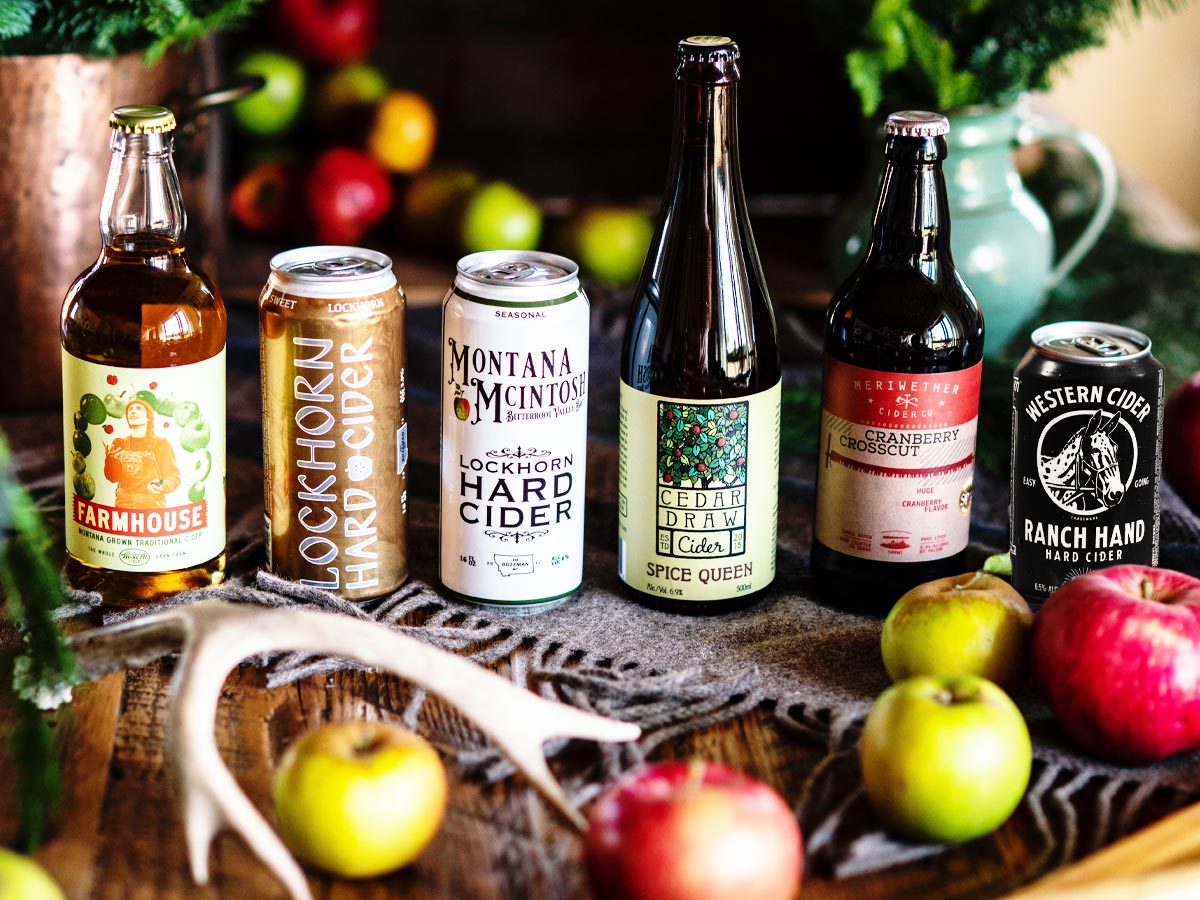By DIANNA TROYER
Questions swirl through Gig Leadbetter’s mind every time he sips a sample of a golden hard cider he has crafted for his family’s business, Meriwether Cider Co., in Idaho’s Treasure Valley.
Is it ready for their tasting rooms in Garden City where customers select from 13 taps or their Cider House in Boise with 20 taps?
“When tasting a new batch, I look at color and clarity,” said Leadbetter, head cider maker. “Next, I swirl for aroma and then taste. In taste, I look for a balance of ingredients and a balance between sweet and tart (acid). Mouth-feel and the lingering aftertaste also play a role before calling it a go.”
Since opening the cidery in 2016, Leadbetter has perfected proprietary recipes that have won more than two dozen awards at contests nationwide, including the Great Lakes International Cider and Perry Competition.
“Cider-making is my passion,” he said. “I smell it, watch it, taste it, and develop it daily.”
He combines countless variations of ingredients—diverse juices from apples and cherries to cranberries and quince, with assorted types of yeasts—applying different fermentation times.
Meriwether Cider is among nearly two dozen hard cideries in Idaho and Montana with tap rooms featuring international imports and prize-winning, artisanal beverages made from locally harvested fruit. Their tasting rooms are convivial places where multi-generations of families often gather.
Both states are part of a blossoming trend in hard cider consumption. Last year, nationwide sales increased 11 percent and amounted to $494.4 million, according to Chicago-based Information Resources Inc.
Hard ciders sales are surging because devotees crave a gluten free, low-alcoholic beverage with no added sugar or preservatives, like sulfites. Sometimes infused with spices and herbs, hard cider flavors are as infinite as their makers’ imaginations.
To celebrate Christmas and New Year’s, the cidaries make festive holiday beverages. Justin Simms, another cider maker at Meriwether, developed a pumpkin cider with holiday spices named, … And Everything Nice.
Not only during the Christmas season, but year-round, many cideries are committed to philanthropy and donate to local nonprofits. Meriwether’s program, Let’s Do Good, raises funds and awareness for different organizations and their missions.
To keep up with steadily increasing demand, Leadbetter makes about 35,000 gallons annually. His experiences with home-brewing beer helped him transition to cider.
“Controlling fermentation transferred over to my cider-making, which also took years of experimentation, failures, and successes,” he said. “At times, I’ve had a half dozen 5-gallon buckets fermenting at different temperatures with different yeasts and juices.”
Leadbetter and his wife, Ann, became entrepreneurs at a time in their lives when most people would consider retiring. They had been firefighters, outdoor enthusiasts and world travelers, and most recently college professors for two decades. Their last jobs were at Colorado Mesa University, where Gig taught kinesiology while Ann’s subject was English.
When they retired from academia, their adult daughters, Kate and Molly, who had also worked as firefighters, joined them in the family enterprise. They named their latest adventure for explorer Meriwether Lewis, a distant relative of Ann’s.
“There is no such thing as retirement as long as you’re passionate and engaged in any activity,” Leadbetter said. “I may retire from a particular activity, but there’s always another to take its place. I’m 66 and try to live a healthy life and will continue to live rather than simply exist.”
To describe their beverages, the Leadbetters brainstorm and pick names that are as entertaining as their recipes. Cherry Thyme Bomb is tart and sweet and steeped in thyme. Wake Up and Dance is semi-dry, made with lemon and a blend of black tea, to provide caffeinated energy. Aged in a gin barrel for six months, Dry Humor is tart and oaky with hints of cardamom and juniper.
The Leadbetters’ timing to make and sell cider was ideal despite closures of tasting rooms due to the coronavirus pandemic.
“Cider is the only craft beverage in the Pacific Northwest that grew in the last year, other than hard seltzer, which some craft brands make,” said Emily Ritchie, executive director of the nonprofit Northwest Cider Association that has more than 100 regional members.
“It’s been a tough go of it the past 18 months, so we’re incredibly happy to see these small businesses continue to make it through these challenging times,” Ritchie said.
With hard cider rising rapidly in popularity, in 2020 the association launched a monthly sampler club for subscribers.
The association’s December Discover Box features six samples from Montana and Idaho, including Meriwether’s Cranberry Crosscut and Spice Queen, an apple cider from Cedar Draw Cider near Buhl, Idaho. Selected Montana samples are Lockhorn Hard Cider, Montana McIntosh, and Farmhouse Traditional.
Cedar Draw Cider
Spice Queen was made from apples and infused with cardamom, which has been referred to as “the Queen of Spice” for its regal, complex flavor, according to Emily Mason, who established Cedar Draw Cider with her husband, John, in 2019. A cider hobbyist, she started her commercial enterprise at the urging of family and friends.
She describes Spice Queen as “citrusy, woodsy, and highly fragrant all at the same time.”
Mason crafts about 5,000 gallons of cider annually, using diverse juices that include quince, a bright yellow, lumpy pear-shaped fruit.
“It’s not a mainstream fruit for many people,” said Mason, who buys quince from a southwestern Idaho orchard.
She tells curious customers that it “tastes a bit floral, like an intense pear but with tropical notes like a guava.”
Mason named the cider War Worthy because, “quince is an ancient fruit rumored to be the golden apple that sparked the Trojan War. It’s one of our best-sellers.”
She has developed more than a dozen recipes. The Wickson Vixen is her favorite.
“I use crabapples from our orchard, fermented with an English cider yeast and aged for six months,” she said. “If you haven’t had cider from non-dessert apples, you’re in for a treat.”
The Sour Empress is an Italian plum cider. Cherry Bakewell relies on Santa Ana cherries and has “a burst of cherry followed by a light almond finish,” Mason said.
Making A Comeback
After tasting a sample, Leadbetter was satisfied another batch was ready for the tap. He noted hard cider was historically a cultural mainstay in the United States.
“By the 18th century, Americans in New England were fermenting 300,000 gallons of cider a year, but by the end of Prohibition, hard cider had almost vanished,” he said. “It has definitely made a comeback and is here to stay.” ISI










